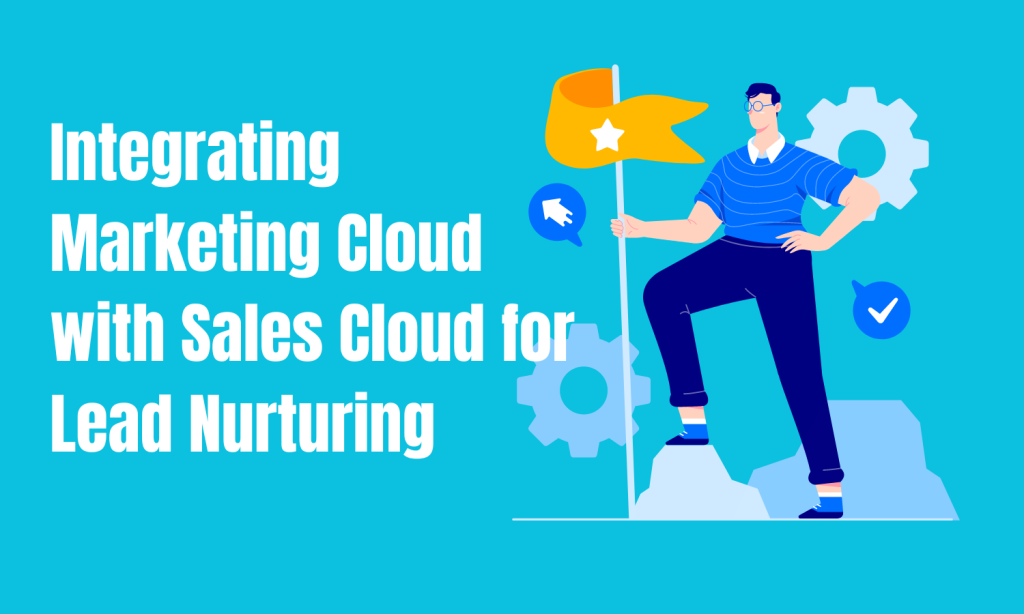Salesforce Marketing Cloud Lead Nurturing
In the realm of digital marketing, Salesforce Marketing Cloud Lead Nurturing stands out as a crucial strategy for engaging potential customers and guiding them through the sales funnel. Effective lead nurturing involves developing relationships with prospects at every stage of the sales cycle and ensuring they receive relevant content that addresses their needs. Salesforce Marketing Cloud provides robust tools and features that help marketers design and implement sophisticated lead nurturing campaigns. For those new to lead nurturing, Lead Nurturing in Salesforce offers valuable insights.
Why Salesforce Marketing Cloud Lead Nurturing Matters

Salesforce Marketing Cloud Lead Nurturing is essential for converting prospects into loyal customers. By leveraging the platform’s capabilities, businesses can:
- Enhance Customer Engagement: Engaging content tailored to the needs of prospects keeps them interested and moves them closer to making a purchase.
- Increase Conversion Rates: Personalized nurturing campaigns significantly improve the chances of converting leads into customers.
- Optimize Marketing Efforts: With Salesforce Marketing Cloud, marketers can automate lead nurturing, allowing for more efficient and effective marketing strategies.
Why does Marketing Cloud have such a steep learning curve?
Salesforce Marketing Cloud is a powerful platform. It offers a plethora of features. These features streamline marketing processes. They also drive customer engagement. However, its complexity can be daunting. This is especially true for newcomers. Here are some reasons why Marketing Cloud has a steep learning curve:
- Advanced Features: Marketing Cloud offers a wide range of advanced features such as journey builder, email studio, and automation studio, which require a deep understanding to effectively utilize.
- Complex Configuration: Setting up Marketing Cloud requires careful configuration of various components such as data extensions, subscriber lists, and tracking settings, which can be overwhelming for beginners.
- Integration Challenges: Integrating Marketing Cloud with other systems such as Sales Cloud involves complex configurations and customization, requiring technical expertise.
- Data Management: Managing large volumes of data within Marketing Cloud requires proficiency in data segmentation, cleansing, and synchronization, which can be challenging without proper training.
- Continuous Updates: Marketing Cloud undergoes regular updates and enhancements, requiring users to stay abreast of the latest features and best practices.
Now, let’s explore how integrating Marketing Cloud with Sales Cloud can streamline lead nurturing and mitigate the challenges associated with Marketing Cloud’s learning curve. For cost-effective strategies and tips, check out Salesforce Marketing Cloud Pricing.
Integrating Marketing Cloud with Sales Cloud for Lead Nurturing
By integrating Marketing Cloud with Sales Cloud, businesses can seamlessly align their marketing and sales efforts, resulting in more efficient lead nurturing and higher conversion rates. Here’s how it works:
Unified Customer View: Integrating Marketing Cloud with Sales Cloud allows businesses to create a unified view of their customers. By consolidating data from both platforms, they achieve this. This comprehensive view enables marketers to deliver personalized messaging. Additionally, they can target messaging based on customers’ interactions and preferences.

Automated Lead Routing: With Marketing Cloud and Sales Cloud integration, leads captured through marketing campaigns can be automatically routed to the sales team for follow-up. This ensures timely and personalized engagement with leads, increasing the likelihood of conversion.
Closed-Loop Reporting: Integration enables seamless data flow between Marketing Cloud and Sales Cloud, facilitating closed-loop reporting. Marketers can track the entire customer journey from initial contact to conversion, allowing for better attribution and optimization of marketing campaigns.
Triggered Messaging: Integration enables marketers to trigger automated messages based on specific actions or events captured in Sales Cloud. For example, when a lead reaches a certain stage in the sales pipeline, a targeted email can be automatically sent to nurture the lead further.
Personalized Content Delivery: Integration allows marketers to leverage Sales Cloud data. Consequently, they can personalize content through Marketing Cloud channels. These channels include email, SMS, and social media. By tailoring content to preferences and behaviors, marketers enhance engagement. Additionally, they can drive conversions effectively.
To understand how to integrate Marketing Cloud Lead Nurturing with Sales Cloud effectively, refer to this article.
Frequently Asked Questions:
Salesforce Marketing Cloud Lead Nurturing refers to the process of cultivating relationships with potential customers (leads) through targeted and personalized communication to guide them through the sales funnel.
Integrating Marketing Cloud with Sales Cloud enables businesses to align marketing and sales efforts, automate lead routing, track the entire customer journey, and deliver personalized content, resulting in more effective lead nurturing.
Some best practices include defining clear data synchronization processes, aligning on lead scoring criteria, establishing closed-loop reporting mechanisms, and continuously optimizing campaigns based on insights.
Businesses can overcome the learning curve by investing in comprehensive training for staff, leveraging online resources and tutorials, seeking guidance from experienced consultants, and gradually experimenting with different features and functionalities.
Potential challenges include data integration complexities, synchronization issues, alignment of marketing and sales processes, and ensuring data security and compliance.
Conclusion
Salesforce Marketing Cloud Lead Nurturing is a powerful strategy for engaging and converting prospects. By leveraging the platform’s advanced tools and following best practices, businesses can create effective lead nurturing campaigns that drive conversions and foster long-term customer relationships. Proper implementation and continuous optimization of these campaigns are key to achieving marketing success.
